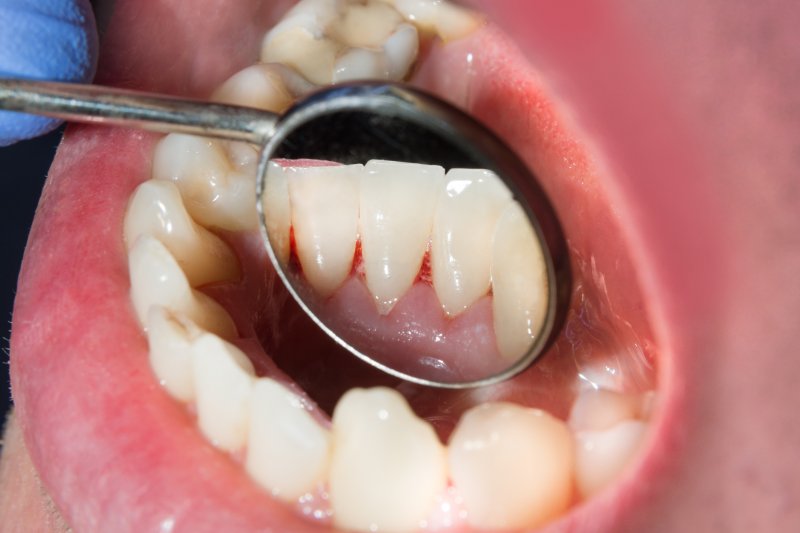
Each year, over 50,000 Americans are diagnosed with oral cancer. Your dentist will likely perform an oral cancer screening during your biannual dental checkups to look for signs of this disease. The mortality rate for oral or mouth cancer is higher than many others, but catching it in its early stages gives you a better chance of beating it. To help you understand what the different stages of oral cancer look like, here are some things dentists may find during screenings and what you can do to prevent it.
What Are the Stages of Oral Cancer?
There are six different types of oral cancer, including cancers of the lips, tongue, inner lining of the cheek, gums, floor of the mouth, and the hard and soft palate. Oral cancer also has four different stages:
- Stage 0 – Also called carcinoma in situ, this is the very beginning of the scale when abnormal, potentially cancerous cells have been located in the mouth.
- Stage 1 – A tumor develops. The tumor is two centimeters or smaller, and the cancer has yet to spread to the lymph nodes.
- Stage 2 – The tumor measures between two and four centimeters, and the cancer cells have not spread to the lymph nodes yet.
- Stage 3 – The tumor is larger than 4 centimeters and hasn’t spread to the lymph nodes yet, or it’s any size and has spread to one lymph node.
- Stage 4 – The tumor can be any size and cancer cells have begun to spread to nearby tissue such as the jaw or other parts of the oral cavity, a lymph node larger than 3 centimeters, or other parts of the body.
Treatment and Prevention
Though there are no proven ways to prevent mouth cancer, you can reduce your risk of developing it by ceasing the use of tobacco products, drinking alcohol in moderation, avoiding excessive sun exposure on the lips, and visiting your dentist on a regular basis. Treatment for oral cancer will vary depending on the stage and location, but there are multiple ways it can be treated, including:
- Surgery – Treatment for the early stages of oral cancer usually involves surgery to remove cancerous lymph nodes and tumors.
- Chemotherapy (chemo) – This treatment administers drugs that kill cancer cells either orally or through an IV line. Most people get chemo on an outpatient basis, but some cases may require hospitalization.
- Targeted therapy – This can be effective on both early and advanced stages of oral cancer and uses drugs that bind to specific proteins on cancer cells to interfere with their growth.
- Radiation therapy – For this form of treatment, a doctor will aim radiation beams at the tumor one or two times each day five days a week for anywhere from two to eight weeks.
- Nutrition – Many cancer treatments make it difficult to eat, which leads to poor appetite and weight loss. Speak with your doctor or dentist about your diet and consider getting advice from a nutritionist. They can help you find foods that are gentle on your mouth and throat and will provide your body with the vitamins, minerals, and calories it needs to heal properly.
Vising your dentist twice a year for regular checkups is a vital part of identifying oral cancer in its early stages. The quicker it’s discovered, the better chance you have of beating it and going on to live a healthy, happy life.
About the Practice
Island Coast Dentistry is dedicated to providing their Naples patients with one-on-one attention in their relaxing, stress-free office. They perform regular oral cancer screenings to identify concerns in their early stages so they can be treated more effectively. The health of their patients is their top priority, and they will do everything they can to keep you and your mouth as healthy as possible. To schedule an appointment or for more information, visit their website or call (239) 261-5566.
